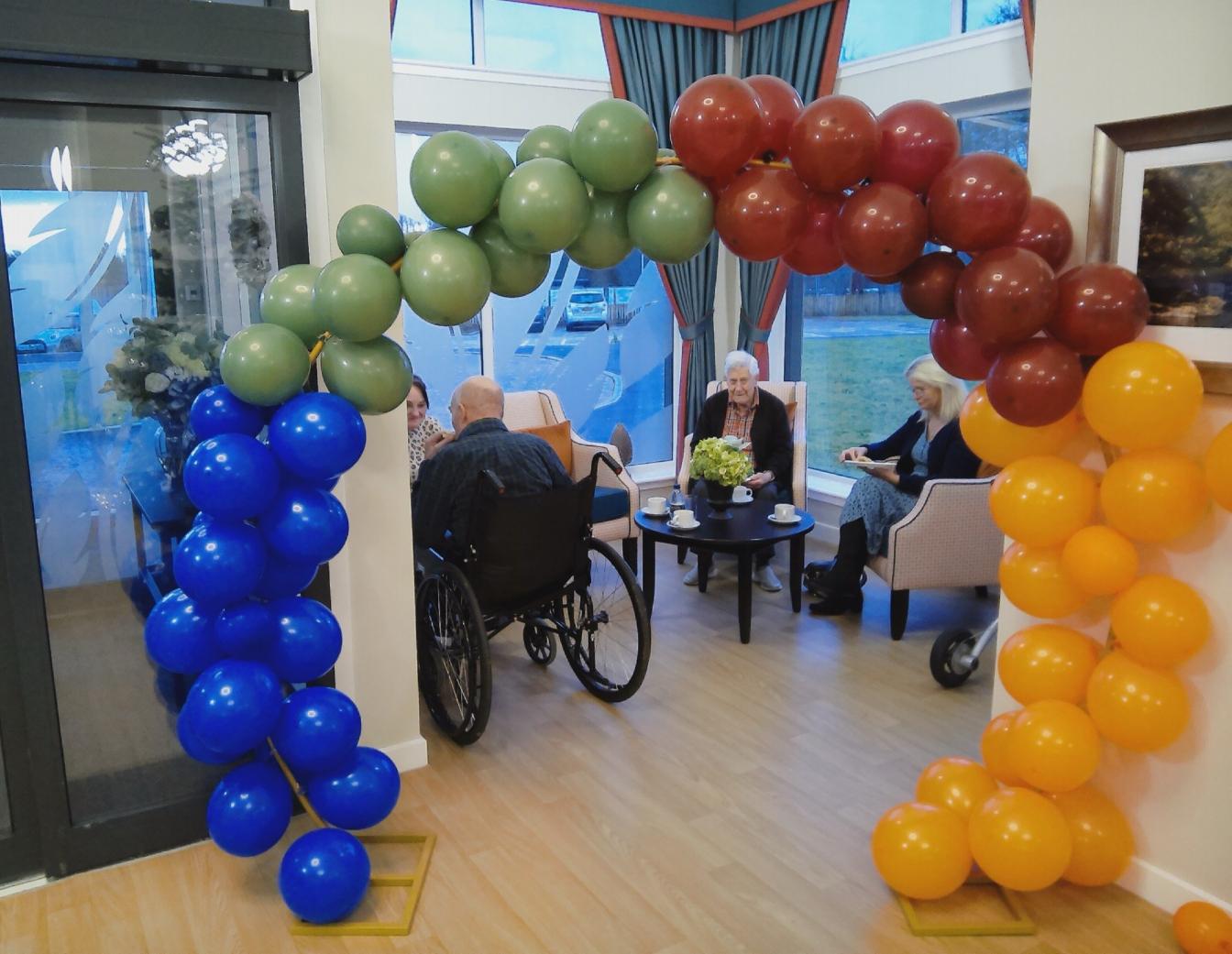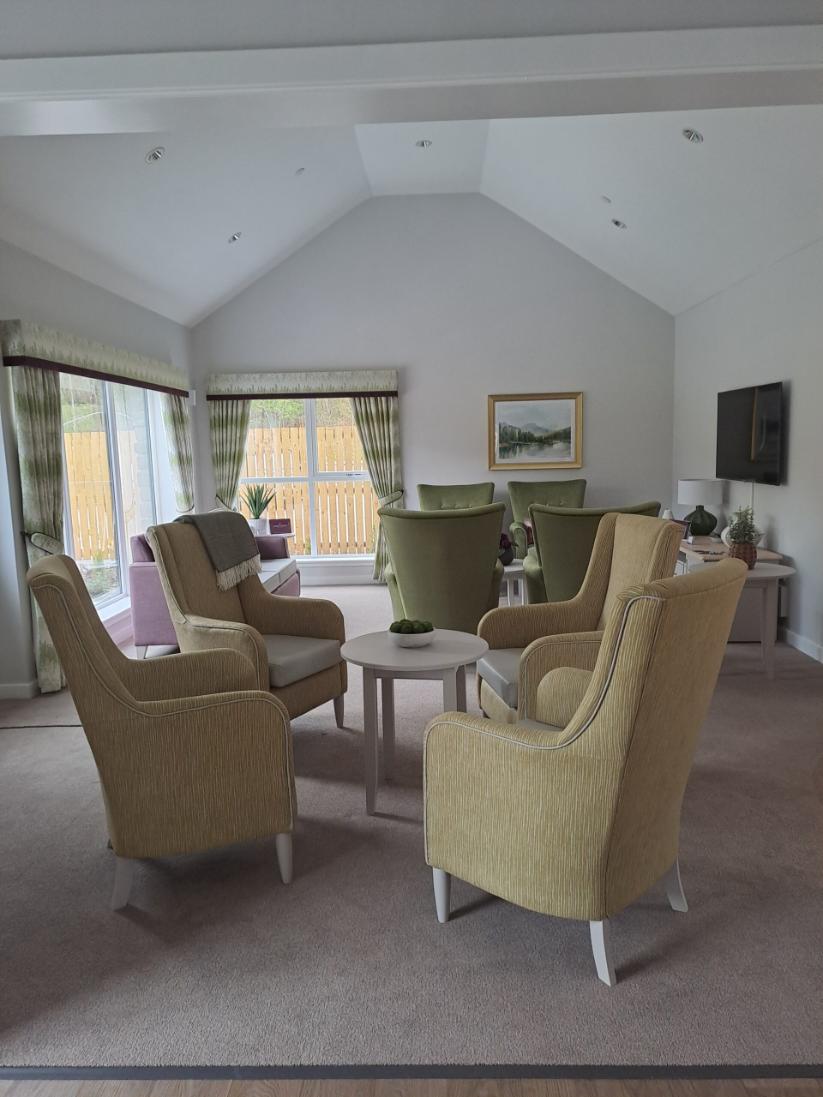Exploring Nature Therapy and it’s Benefits for Care Home Residents
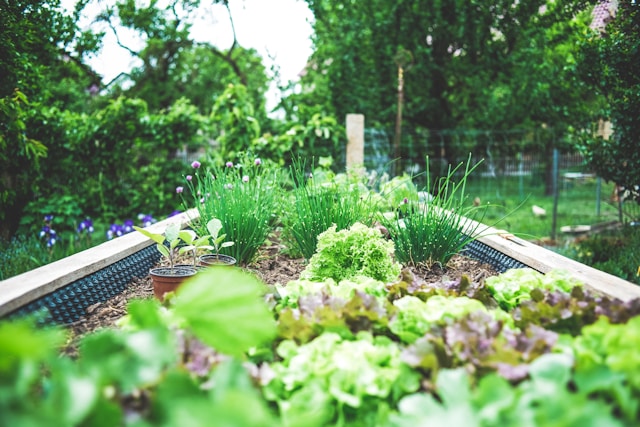
Nature therapy, also known as ecotherapy, involves spending time in natural surroundings to nurture mental health and overall well-being. For older adults living in care homes, this gentle approach to therapy can be especially valuable. Whether it’s taking a leisurely walk in a garden, tending to plants, or simply sitting outdoors, engaging with nature offers a welcome respite.
The benefits of nature therapy for older adults include reduced feelings of stress and anxiety, improved mood, and a sense of calm that supports emotional well-being. This therapy can be adapted to suit different mobility levels and abilities, making it accessible to many residents.
By bringing nature into their daily lives, older adults often develop a stronger connection to the world around them and to themselves. This connection can enhance mental health, boost self-esteem, and provide a meaningful sense of purpose during later life.
Benefits of Nature Therapy and Gardening Activities
Spending time in natural surroundings has a range of positive effects on the mental health of older adults. It can help reduce feelings of anxiety and depression, offering a gentle way to lift mood and improve emotional well-being. For many residents, the calming presence of nature brings a sense of peace that supports better sleep and reduces stress.
Nature therapy can also have physical health advantages. Exposure to fresh air and natural light has been linked to improved immune function and lower levels of inflammation. For older adults receiving nursing care , these benefits contribute to overall health and resilience. The sensory experiences of nature engage the senses in a unique way. The sound of birdsong, the fragrance of flowers, and the warmth of sunlight on the skin can all provide comfort and joy. These simple pleasures often help residents feel more present and connected to their friends and surroundings.
Social opportunities are another important benefit. Group activities like gardening or nature walks encourage social interaction, reducing feelings of loneliness and fostering a sense of community within care homes. This social connection is vital for emotional health in later life. Nature therapy offers a gentle path to greater calm and well-being, supporting older adults in managing day-to-day stress and enhancing their quality of life.
Therapeutic Environments
Therapeutic environments tailored for older adults in care homes, such as sensory gardens, offer a wealth of benefits for both mental health and overall well-being. These specially designed outdoor spaces provide a safe, accessible setting where the scent of nature allows residents to relax, engage with nature, and enjoy gentle physical activity. Features often include water elements, walking paths with level surfaces, raised plant beds, and seating areas, all created with mobility and comfort in mind.
Sensory gardens, in particular, help stimulate all five senses through fragrant plants like lavender, the sound of water or birdsong, textured foliage, and vibrant colours. These sensory experiences can bring calm, encourage reminiscence, and reduce agitation, positively affecting the brain making them especially valuable for people living with dementia. The opportunity to tend plants or simply enjoy a quiet moment outdoors can foster focus, motivation, and a renewed sense of purpose.
Such environments also promote social interaction. Group gardening activities or simply sharing time in these peaceful spaces can lessen feelings of loneliness and create opportunities for connection among residents. Importantly, well-designed therapeutic gardens support autonomy by allowing residents to explore and enjoy nature independently, which is crucial for mental well-being.
Care homes that integrate these natural spaces often see improvements in residents' mood, cognitive engagement, and physical health through increased gentle exercise. Overall, therapeutic environments are essential components of holistic care, enhancing quality of life and emotional health for older adults living in care settings.
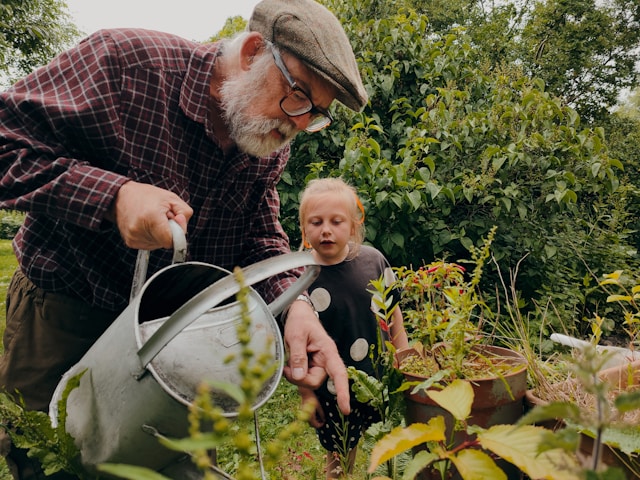
Dementia Care and the Sensory Garden
Nature therapy plays a vital role in supporting individuals living with dementia within care homes. Sensory gardens and outdoor environments designed specifically for those with dementia provide gentle, meaningful stimulation through all the senses that can help reduce restlessness and promote calmness. These spaces encourage engagement through safe and familiar natural elements, allowing residents to evoke positive memories and a sense of comfort.
Gardening activities, such as planting, watering, and tending to flowers and herbs, offer opportunities for physical movement while fostering social interaction. These activities can help maintain motor skills and provide a purposeful daily routine, which is important for cognitive function and emotional well-being.
Incorporating natural elements like sunlight, greenery, and water features within dementia care settings can also improve mood and decrease feelings of agitation or anxiety. By experiencing the rhythms and sensory richness of nature, residents with dementia often rediscover the joy they felt as a child, experiencing renewed focus and relaxation, contributing to an enhanced quality of life. Overall, nature therapy is an accessible and adaptable approach that helps people with dementia stay connected to their environment and themselves, providing comfort and stimulation in a supportive way.
Technology and Nature
Technology is increasingly being used to enhance the experience of nature therapy for older adults in care homes. Virtual reality can transport residents to immersive natural settings, such as forests, beaches, or gardens, offering a valuable alternative for those with limited mobility or who cannot easily access outdoor spaces. These virtual experiences can promote relaxation and reduce feelings of isolation.
Digital tools also support staff in creating personalised nature therapy programs, using apps to plan garden activities or track residents’ engagement and responses. Additionally, technology helps promote environmental conservation efforts within care homes by monitoring plant health and encouraging sustainable gardening practices. By blending technology with nature, care homes can expand access to therapeutic outdoor experiences, making nature therapy more inclusive. This innovative approach helps residents enjoy the benefits of nature, even when physical access is a challenge, supporting their mental and emotional well-being.
Conservation and Its Relation to Nature Therapy in Care Homes
Conservation plays a key role in supporting nature therapy within care home environments. By preserving natural spaces and biodiversity, care homes help secure the quality and availability of therapeutic gardens and green areas that benefit residents. These natural surroundings are not only calming but essential for promoting mental and physical well-being in older adults.
Emphasising conservation also fosters a deeper connection between residents and the natural world. Incorporating native plants and regional wildlife into therapeutic gardens can create familiarity and comfort while promoting ecological sustainability. This approach encourages care home communities to value and respect the environment, supporting a sense of shared responsibility and purpose.
Conservation within care settings aligns with wider social and cultural values, including indigenous perspectives that often stress harmony with nature. Such integration enriches the therapeutic experience by connecting older people residents to broader environmental and community goals. Overall, conservation efforts ensure that therapeutic natural environments remain vibrant and accessible for future generations of care home residents, while also nurturing social connection and a meaningful sense of belonging.

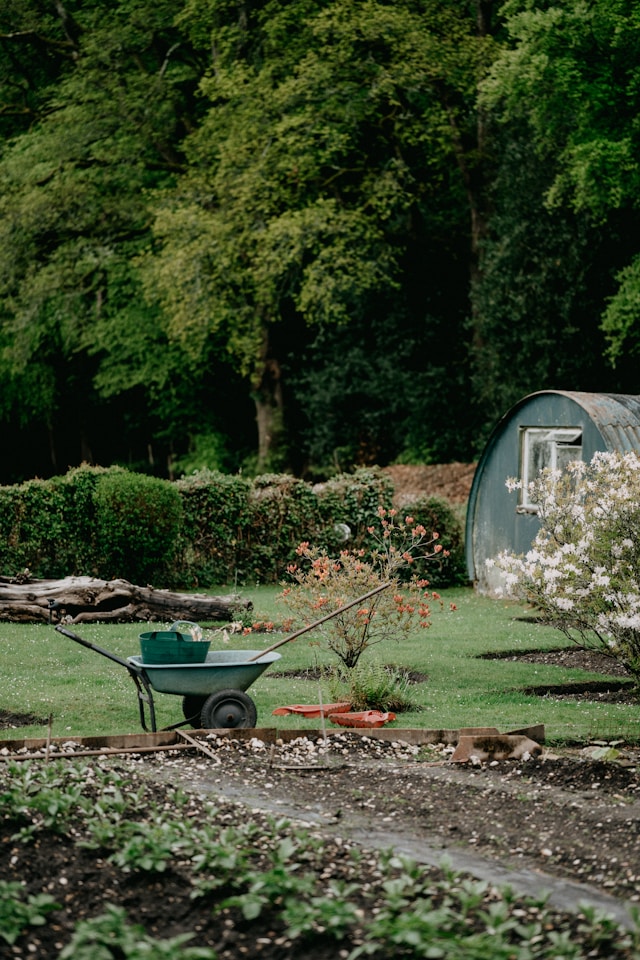
Nature Therapy in Care Homes
Care homes should follow expert advice and design gardens and walkways with accessibility in mind, featuring wide, even paths, resting areas with benches, and shaded spots to provide comfort during outdoor activities. Staff training, appropriate supervision, and thoughtful design of outdoor spaces that minimise hazards while maximising freedom for residents to explore. Clothing and weather protection also matter to make time outdoors enjoyable and comfortable throughout the year.
Providing education and training on the benefits and practical application of nature therapy empowers care teams to integrate nature into their daily routines. Technology, such as virtual reality nature experiences, can also offer alternatives for residents unable to go outside, ensuring no one misses out on the therapeutic effects of connecting with nature. Through thoughtful design, staff support, and inclusive approaches, care homes can make nature therapy accessible and equitable. This promotes mental well-being, social connection, and a deeper sense of autonomy and joy for all residents.
Embrace the Healing Power of Nature at Osprey Court Care Home
At Osprey Court Care Home in Alyth, we understand the unique benefits nature therapy offers to the mental and physical well-being of older adults. Set in the tranquil surroundings of Pitcrocknie Village, our purpose-built luxury home provides access to beautifully designed gardens and outdoor spaces that invite residents to connect with nature every day. Whether through gentle walks, gardening activities, or simply enjoying the fresh air, nature plays a vital role in enhancing quality of life.
Our dedicated team supports personalised care that integrates the calming and restorative effects of the natural environment, tailored to meet each resident’s needs and abilities. Alongside state-of-the-art facilities, including comfortable lounges opening onto patios and carefully landscaped gardens, Osprey Court offers a warm and welcoming community where wellbeing is nurtured holistically.
Discover how nature can inspire healing and happiness at Osprey Court Care Home. To learn more about our services or to arrange a visit, please contact us today. Let us show you how we make every day meaningful and enriching through the power of connection with nature. Get in touch to book your personal tour and start your journey to a vibrant, nature-filled life with us.



